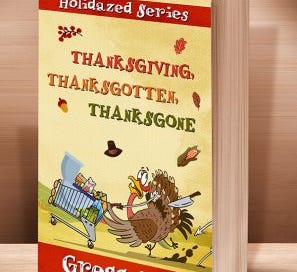The following is an interview Robin Nesbitt of the Columbus (Ohio) Metropolitan Library conducted with Gregg Sapp at the Ohioana Book Festival, April 2021
You can find Gregg Sapp’s books on the Evolved Publishing website or your favorite online bookseller.
Here’s a brief description of Gregg’s latest novel, Thanksgiving, Thanksgotten, Thanksgone.
When the…
Keep reading with a 7-day free trial
Subscribe to A Writer's Block: Robb Grindstaff to keep reading this post and get 7 days of free access to the full post archives.





